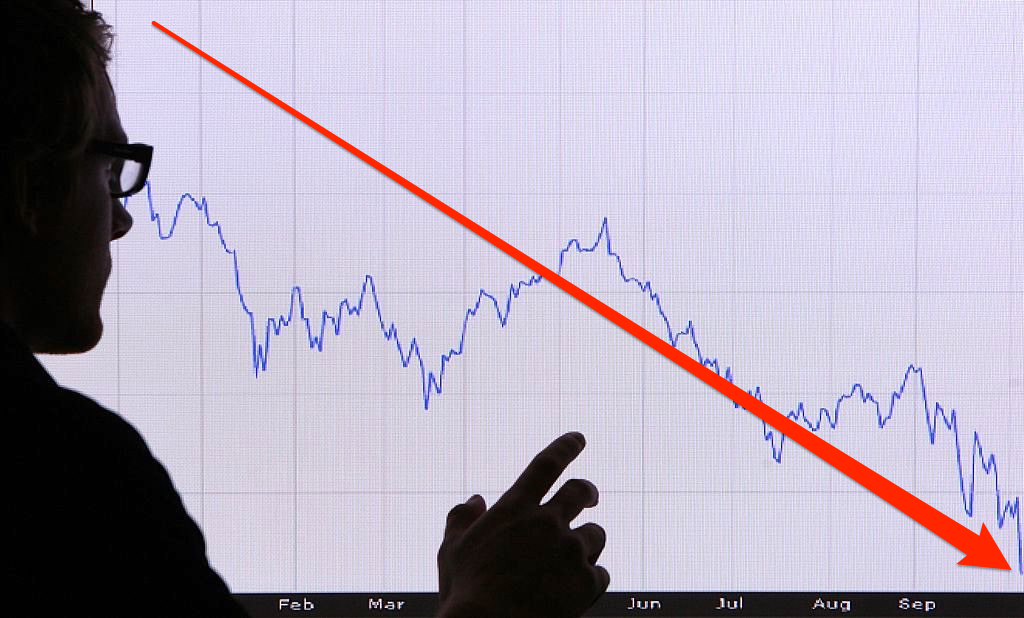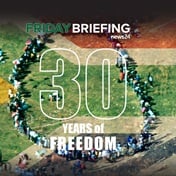
Whether the pandemic, and the massive job losses will help focus the minds of civil servants amid government’s crucial bid to reduce its wage bill, remains to be seen, writes Helena Wasserman.
Oh, for the good old days of a month ago, when we worried about loadshedding.
How positively quaint our recent concerns over a half-percent growth rate and a government debt burden of 70% to GDP.
In a best-case scenario - we flatten the curve without major loss of life, and the healthcare sector doesn’t implode - South Africa will still emerge from this crisis naked and junked.
The unemployment rate will blow out to some unthinkable percentage, and the economy may shrink by between 2% and 7% this year.
It will probably be the worst economic year in four decades.
Tax income will fall off a cliff - not only because companies and individuals are not earning enough income to tax, but also because government is offering tax breaks to keep the economy afloat.
Eskom’s debt-laden position will worsen, as its income will take a big hit from lower power demand.
Government has to ramp up spending to cope with the crisis, and will have to borrow so much more to pay for services and salaries, right when its bonds have been stripped of their investment-grade rating.
Its bonds are now deemed riskier and investors will demand higher interest rates. More and more will be spent on interest, leaving less for investments in the economy.
Moody's now expect our debt burden will balloon to 91% of GDP by 2023. That’s the bad news. The less bad news is that 150% is the new 100%, analysts say.
Other countries are also ramping up their debt, pumping billions into their economies and healthcare systems as it fights the coronavirus.
Italy's debt-to-GDP is expected to rocket to 160% this year, with France and Spain above 100% as well.
The US is also already at these levels - and that’s before a new $2 trillion stimulus package.
Of course, we aren't the US, France, Spain or even Italy.
South Africa will never get the same leeway.
Already this week, concerns over emerging markets' ability to service their debts saw the rand and its peers plummet.
Unlike many other countries, however, most of South Africa's government debt is denominated in rand - not dollar.
A currency crash won’t have the same devastating impact on our debt burden than elsewhere.
And for now, despite our junk rating, there remains some confidence in government’s ability to pay back the money: this week, the demand for South African bonds far outstripped the supply on offer at a government auction.
Whether this appetite will be maintained is yet to be seen, as the pandemic brings other great shifts to the South African economy:
Oil, inflation and interest rates.
The oil price crashed almost 50% over the past month, and has probably found a new footing at around $30 (at best) for the foreseeable future.
While nothing can be ruled out in a world where toilet paper is suddenly a hot commodity, it seems highly unlikely that oil will recover any time to back above $50 soon as the market remains flooded and demand is plummeting.
South Africa is among the countries that will benefit most from this - oil is by far our largest import.
This means that despite the 20% fall in the rand over the past month, inflation is basically dead in South Africa.
Lower fuel prices and transport costs (among the biggest inputs determining food prices), along with a dearth of demand in a recessionary economy, will kill off any signs of inflation, paving the way for a new normal in interest rates.
The Reserve Bank has been overly conservative in keeping rates high, but it seems a grudging "thank you" is in order.
Its time to shine is now, and households and business should save billions in interest rates cuts in the months to come.
Still, this won't stop many, many companies from going bankrupt - including some household names.
SA healthcare
Lofty plans for a new South African national health system will probably fall victim to new post-virus realities. There won’t be any money left for it.
But in its place could come much tighter public-private cooperation as government and companies seem to work closely together in the fight against the pandemic.
Private hospitals report that they have started treating state patients for Covid-19 and it seems as if government is working with them to coordinate resources.
This could forge new relationships and cooperation in future, and the clear way Health Minister Zweli Mkhize led from the front should assuage distrust in government's motivations among private players.
That said, we may only be at the start of this calamity, and there are no assurances that the health system will hold up as the virus starts spreading in the colder winter months and among South Africa’s most at-risk population.
The myth of the banana republic, busted
The stereotypical view of South Africa, particularly among South Africans, is that we live in a chaotic place, which is largely in disarray. There is little trust in law and order, and the impunity of state capture as well as potholes and load shedding have solidified this view.
But this perception has now pretty much been exploded by the state reaction to the coronavirus.
The SA government faced the same challenge as other countries: a killer virus that spreads fast. Measured against other countries with vastly more resources, its action was among the most decisive in the world. Elsewhere, in the US, Europe and the UK, there was dithering and delay. Many countries, including Sweden and Turkey, have seen many people die, but still have not imposed national lockdowns.
History will show that South Africa became the first country in the world to impose a strict shutdown before a single death due to the virus. This saved the lives of countless people.
It also came at a massive economic cost, and poorest citizens are suffering worst. The state is not moving fast enough to feed and help them.
But the way in which government managed to lock down a massive country, pumping out reams of new regulations along the way to do this within a legislative framework, often with due consideration of long-term consequences, shows that the state machinery is still in working order.
A more formalised economy
Government is not wasting the crisis - it is using it to formalise the economy. Again and again, in briefing after briefing and regulation after regulation, the message is clear: you will get government help if you are on the books.
All of the state’s relief measures so far - including tax breaks and cash payments - are reserved for businesses which are registered with the authorities.
Spaza shops have been allowed to do business during this time - but only if they have permits. Also, under a new scheme, they can get government cash - if they register with SARS.
In its negotiations with taxis about lockdown terms, government is pushing for greater regulation of that industry, with Transport Minister Fikile Mbalula telling taxi drivers that they would have received money in this time from the Unemployment Insurance Fund, if they were registered.
This push will widen the tax net for years to come.
Other changes
The coronavirus crisis will shape our economy in ways that are not clear yet. But for one, the lockdown will surely hasten South Africa's digital evolution.
Companies have scrambled to equip thousands of workers to work from home, as churches, schools and all kinds of businesses move their activities online.
Every day, companies are finding that spending thousands on air travel were unnecessary - big decisions can be made over video calls. This could result in a permanent boost to productivity.
A continued clampdown on the free-flow of alcohol may be expected, as the sharp fall in crime, violence and car accidents since consumption restrictions were first adopted, highlights the extent to which drinking fuels some of SA’s biggest problems. At least one minister has warned that shebeens would face harsher restrictions after the crisis is over.
This won’t be unique to South Africa, but the pandemic will create a new appreciation for science and the medical profession, which should determine resource allocation and career choices for years to come.
The pandemic may also do a small bit to stem the tide of emigration out South Africa. There is something about seeing old people die on hospital floors in some of the world’s richest countries that focuses the mind. Perceptions of where is "safe" have changed, but not only that - as air travel shuts down, and people are stuck far away from their families, the cost of being without those you love when it's the end of the world, is now clear.
Also in sharp relief: the stark inequalities in South Africa. As the rich weep over their greening swimming pools and missed CrossFit sessions, poor families are cramped up in one-room shacks with no income and no food.
Every day that government doesn’t directly help these people, the risk of social distress turning into overwhelming social unrest will escalate.
President Cyril Ramaphosa needs to do more, urgently.
New emergency grants must be introduced, money needs to get to those who need it most.
Whether the pandemic, and the massive job losses will help focus the minds of civil servants amid government’s crucial bid to reduce its wage bill, remains to be seen.
At this stage, it looks as if Ramaphosa's government will emerge with a stronger grip on power. It needs to be wielded for the good of all in South Africa.
- Wasserman is editor of Business Insider SA




 Publications
Publications
 Partners
Partners























